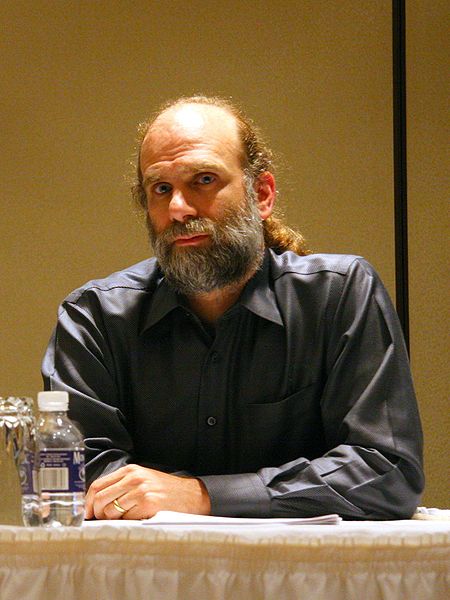Bruce Schneier: “Keeping Control of Your Source Code Didn't Magically Make Windows Secure”
- Dr. Roy Schestowitz
- 2010-10-20 05:39:58 UTC
- Modified: 2010-10-20 05:42:32 UTC

Bruce Schneier photo by sfllaw
Summary: Harsh words about Windows security from a security guru but promotion from the MSBBC
India's "Grand Secret OS" (developed with involvement of the Indian government) has just led Bruce Schneier to making this statement which reminds us that transparency -- not control -- may be the key to making software more secure.
The only way to protect it is to design and implement it securely. Keeping control of your source code didn't magically make Windows secure, and it won't make this Indian OS secure.
Recall some of the latest (published this month) Microsoft security propaganda from the MSBBC [
1,
2,
3]. "Who does Maggie Shiels work for? MS or the BBC It's getting harder to tell," argues our valued regular
ThistleWeb, who respond to
this latest advertisement from Maggie Shiels. She
has been doing this for a while (pretending or neglecting to state that zombie PCS are a Windows issue).
ThistleWeb adds, regarding this same article: "prepare for a new wave of malware, all powered by the infected MS cloud, instead of regular powered MS desktops"
Well, here is
another new report about such issues:
A recently discovered category of malware -- advanced evasion techniques -- can sneak through most intrusion-prevention systems to deliver even well-known exploits such as Sasser and Conficker to targeted machines without leaving a trace of how they got there, researchers say.
When will the world's governments realise that secure platforms are produced by collaboration rather than secrecy? And when will the BBC cease to be the second home of Microsoft UK? It has become embarrassing for a network which taxpayers are forced to fund.
⬆


Comments
mcinsand
2010-10-20 21:30:56
Regards, mc
mcinsand
2010-10-20 12:24:01
Regards, mc
Dr. Roy Schestowitz
2010-10-20 13:39:06
mcinsand
2010-10-20 13:58:23
In the US, there are also only two manufacturers of gasoline (petrol) handling pumps, and these are now sophisticated enough to connect to the internet, call for shipments, and arrange deliveries. One of these companies uses MSIE-only, and an executive (another neighbor) dismissed customers that want to avoid MSIE for security reasons as 'whiners.' Petrol is dangerous and, in today's world, we can't leave tanks open to crackers to mishandle or misroute.
MSIE is a global security risk that we cannot afford. Regards, mc
Dr. Roy Schestowitz
2010-10-20 14:08:19
http://oreilly.com/catalog/9780596009397